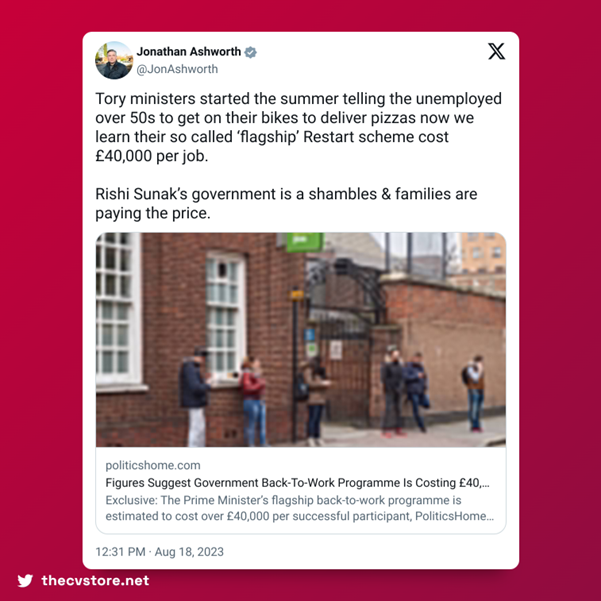50 Shades of Experience: CV writing tips for the over 50s
Navigating the job market at 50 or beyond may come with unique challenges, but age should not be a barrier to exploring new opportunities or advancing your career. In a post-COVID world, hundreds of thousands of people (possibly as many as 300,000) have left the workforce and have not yet returned. As Jeremy Hunt said earlier this year, "Britain needs you!"
Many people who are aged 50 or over are reluctant to move roles or try for a new position because they believe their age will work against them. This is not true. The facts remain that if your CV clearly communicates how you have added value to an organisation, you would be considered along with everyone else. It’s about how you sell yourself and what you have achieved that is important. There is also a lot to be said for experience and the reliability that a more mature applicant will bring.
With decades of experience under your belt, your CV can be a powerful testament to the value you can bring to a new role. Here’s how to ensure it communicates just that.

"There is also a lot to be said for experience and the reliability that more mature applicant will bring"
Value Your Age, Sell Your Experience
Many over 50 may fear that their age is a disadvantage. This concern, while understandable, overlooks the considerable advantages that experience brings – reliability, a wealth of knowledge, and a track record of growth and success. Your CV should articulate the value you've added to past organisations, positioning your age as a benefit, not a hindrance.
Updating Your CV
If you're dusting off a CV that has seen little change over the years or crafting one for the first time in decades, modernisation is key. Today’s CVs are not just historical accounts but strategic marketing tools. They are concise, focused, and highlight the most relevant aspects of your professional journey. Make sure to:
- Update the format to align with current professional standards.
- Fill in any gaps since your last update, ensuring your CV is current.
- Reformat job descriptions into achievement-oriented bullet points.
Highlight Achievements Over Duties
Long paragraphs detailing job descriptions are outdated. Instead, focus on concise, punchy sentences that showcase your successes. Reframing your daily job duties into achievements, will help to increase your CV's impact and make the information more digestible to the reader.
Modern CV Etiquette
Over the years, the format of a CV has changed considerably and they have become more compelling to read, certainly much more concise and customised to particular roles. Contemporary CVs omit the once-typical listings of reasons for leaving a position, earnings, or any potentially prejudicial information. They focus on the positive, highlighting strengths and achievements without a hint of negativity. They also use industry-relevant buzzwords and are often written in an active voice to create a dynamic impression.

Sensitive Information
Take into account the modern recruitment standards, where personal details such as age, race, religion or health status are no longer necessary or appropriate on a CV (this can differ slightly for regions, including the Middle East). Focus solely on professional qualifications and what you can contribute to the role.
The Cover Letter
A cover letter complements your CV, allowing you to narrate your professional story in a more personal tone. It’s your chance to connect your past achievements with the future potential, directly addressing how your experience aligns with the job you're targeting. A cover letter should be used to present to drawn the recruiter's attention to your most interesting successes (relevant to the positions you're applying for).
Networking: The Age-Old (and Ageless) Strategy
Your age is an advantage when it comes to networking. With years in the industry, your web of connections is likely extensive. Harness these relationships, both online and offline, to uncover job leads, gain referrals, and gather intel on roles and organisations.

"Open doors through networking opportunities"
In summary, a well-crafted CV for a job seeker over 50 should be a vibrant document that celebrates your professional journey. It should be a beacon that not only recounts where you’ve been but also shines a light on where you can go and the value you will bring to future employers. By focusing on achievements, modernising your approach, and utilising your network, your CV will open doors to new possibilities, regardless of age.
Looking for more help? We've listed some useful sites below:
- Requesting More Flexible Working Arrangement (ACAS)
- Department for Work and Pensions' Help and Support for Older Workers
- Age Diversity Network
